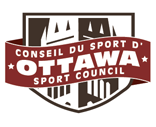Sport tourism is one of the fastest growing segments of the tourism industry and offers an opportunity for community sport organizations to showcase local talent, create legacies for host communities and encourage participation in sport.
According to United Nations World Tourism Organization (UNWTO), Sports tourism involves tourists who either observe as a spectator or actively participate in a competitive sporting event. UNWTO estimates that sport tourism is an 800-billion-dollar industry, represents 10 per cent of the entire tourism industry and is growing rapidly.
With such impact, sport tourism is a unique way for local sport organizations to partner with provincial and national sport organizations to host high-level competition and attract new eyes to the local sport community.
Hosting high-level sporting events brings economic activity to the community at large in the form of sport tourism, but also brings other immeasurable benefits. Hosting national- and international-level sport can create role models for young, impressionable local athletes who might have never witnessed or met elite athletes in person before. For the hosting community sport organizations, these large-scale events mean exposure throughout the host city, reaching audiences outside its immediate sport community. For the sport community in the host city, hosting such events can increase sport participation.
In Ottawa, there is a history of hosting successful sporting events. In 2017, the city hosted a range of national championships, contributing to its 2017 Sport Tourism Destination of the Year award by the Canadian Sport Tourism Alliance.
Ottawa, powered in part by Ottawa Tourism’s commitment to sport event hosting, has also hosted major championships and competitions staged by international organizations like the NHL, LPGA, FIBA, Red Bull and the ITF. According to Sport Tourism Canada, Ottawa ranked fifth for the 2020 Canada Sport Hosting Index.
Recently, the Rideau Canoe Club hosted the 2021 Canoe Kayak Canada Sprint Championships, welcoming more than 1200 athletes from across the country at Mooney’s Bay. Hosting an event that featured some members of the Canadian national team offers a unique opportunity for local young, aspiring canoe and kayak athletes to meet and interact with some of the country’s best athletes.
For a local sport organization, it can be daunting, however, to host such a large-scale event. There are a variety of resources that can offer guidance, like this webinar hosted by Sport Law.
The webinar tackles the why and how of hosting a sporting event. The presentation highlights:
- The benefits to local clubs and communities to hosting a sport event
- Why the bid is such an important step in attaining success
- Questions to ask when preparing a bid
- Critical elements to building a successful sport event bid
- Identifying what it means to be a great host
While COVID-19 has added some complexity to hosting a sport event, it’s clear now that it can be done safely and effectively. Sport organizations in Ottawa, like the Rideau Canoe Club, have shown first-hand that the city is still very successful in hosting such events. For additional resources, sport organizations can visit Sport Tourism Canada’s COVID-19 resource page.
Sport event hosting can be very valuable for any local community sport organization. .
Provincial, national, and international events showcase local athlete talent, promote sport to a wider population and create representation for young athletes that ideally will increase participation in sport in general within the community.

